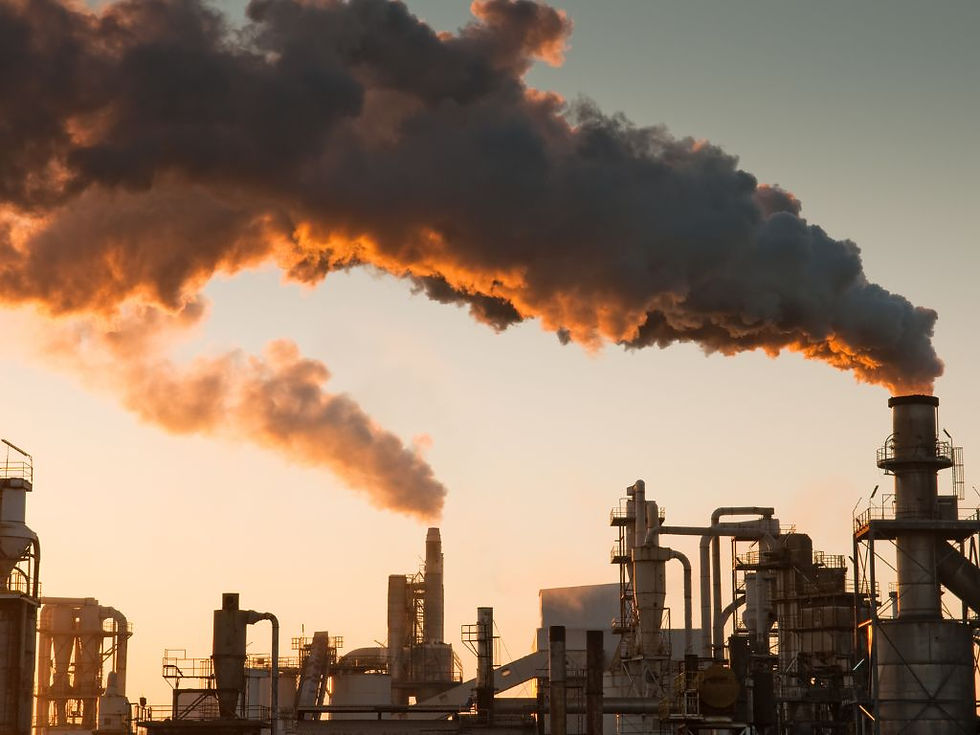Can Hydrogen Be the Breath of Fresh Air We Desperately Need?
- HX

- Jul 29, 2025
- 3 min read

There is a devastating truth that many of us don’t think about when we fill up our cars, turn on the lights, or fire up a stove: fossil fuel air pollution is killing us—by the millions. According to a peer-reviewed study published in Environmental Research, air pollution caused by burning coal, gasoline, and diesel fuels was responsible for 8.7 million premature deaths globally in 2018. That’s roughly 1 in every 5 deaths—more than the global death toll from HIV, malaria, and tuberculosis combined. It’s also twice as high as earlier estimates, making this a sobering wake-up call for policymakers, industry leaders, and everyday citizens alike.
The Invisible Killer in Every Breath
The silent culprit behind these deaths is PM 2.5—microscopic particulate matter emitted during fossil fuel combustion. These particles are 30 times smaller than a human hair, making them easy to inhale but nearly impossible to remove. Once inside the body, PM 2.5 can lodge deep in the lungs, seep into the bloodstream, and wreak havoc on organs over time—causing strokes, heart attacks, respiratory disease, cancer, and more.
And it doesn’t affect everyone equally. As Dr. Neelu Tummala of George Washington University explains, “The air we breathe impacts everyone’s health, but particularly children, older individuals, those on low incomes, and people of color.” In urban areas where traffic congestion and industrial activity are concentrated, the burden is even greater. Think about it: something as basic and universal as breathing shouldn’t be a health risk. But for billions of people, especially in regions like India, China, Western Europe, Southeast Asia, and parts of the U.S., that’s the grim reality.
Hydrogen: A Clean, Scalable Lifeline
Here’s the good news: we don’t have to keep living like this. Clean hydrogen—produced using renewable electricity from solar or wind—is a zero-emission energy source that doesn’t generate PM 2.5 or any other toxic air pollutants. Imagine a future where our cars, buses, trucks, ships, and even airplanes run on green hydrogen instead of diesel or gasoline. Imagine steel factories and power plants powered by hydrogen instead of coal. That future isn’t science fiction—it’s already beginning to happen in forward-thinking countries and industries.
Hydrogen’s adoption won’t just reduce greenhouse gases—it will directly reduce the number of people dying from air pollution every single day. Let’s take a page from China’s success story: between 2012 and 2018, the country cut its fossil fuel PM 2.5 emissions by 44%, saving around 1.5 million lives annually. This was achieved through aggressive clean energy policies, investments in public transit, and reductions in coal consumption. If hydrogen adoption becomes part of that global toolkit, the impact could be even more transformative.
Why This Isn’t Just About the Climate
What makes this issue even more urgent is how deeply it intersects with social and environmental justice. Communities of color and low-income neighborhoods are often situated near highways, factories, and fossil-fuel-burning power plants. These communities face higher rates of asthma and heart disease. Switching to clean hydrogen solutions is a bold move toward climate action, public health, and equity—all at once.
And while natural sources of PM 2.5—like dust and wildfires—are hard to control, pollution from fossil fuels is something we can regulate. The new study, using high-resolution data from NASA and emissions tracking, confirms that we now have the tools and knowledge to target the worst offenders with precision.
A Future We Can Choose
It’s not often that we get this level of clarity in global crises. We now know that fossil fuels are killing millions of people every year, and that clean hydrogen is one of the fastest, cleanest ways to change that trajectory.
Every day we delay the hydrogen transition is a day when more children develop asthma, more elders suffer heart attacks, and more families bury loved ones who never saw it coming. But every step we take toward hydrogen adoption—whether it’s new infrastructure, cleaner vehicles, or investment in innovation—is a step toward breathable cities, healthier families, and a livable planet.
.png)



Comments